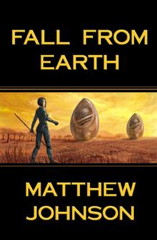Work without interruption
Via Tobias Buckell, here’s an interesting talk by Jason Fried — co-author of Rework, a counterintuitive look at work culture — on why work doesn’t happen at work. “Why,” he asks, “do we expect people to work well if they’re interrupted all day in the office?” Anyone who works in an office will find his argument all too familiar: interruptions by “managers and meetings” disrupt the flow of work to the point where people actually have to go outside the office to get anything done.
For creative work, he says, uninterrupted time is essential:
What you find is that especially with creative people — designers, programmers, writers, engineers, thinkers — that people really need long stretches of uninterrupted time to get something done. You cannot ask somebody to be creative in 15 minutes and really think about a problem. You might have a quick idea but to be in deep thought about a problem and really consider a problem carefully, you need long stretches of uninterrupted time.
Fried also makes an interesting comparison between sleep and work: both, he argues, work in stages: if you’re interrupted, you can’t go back and pick up where you left off, you have to go back and start over.
Here’s why this is relevant to my interests.
 In
In